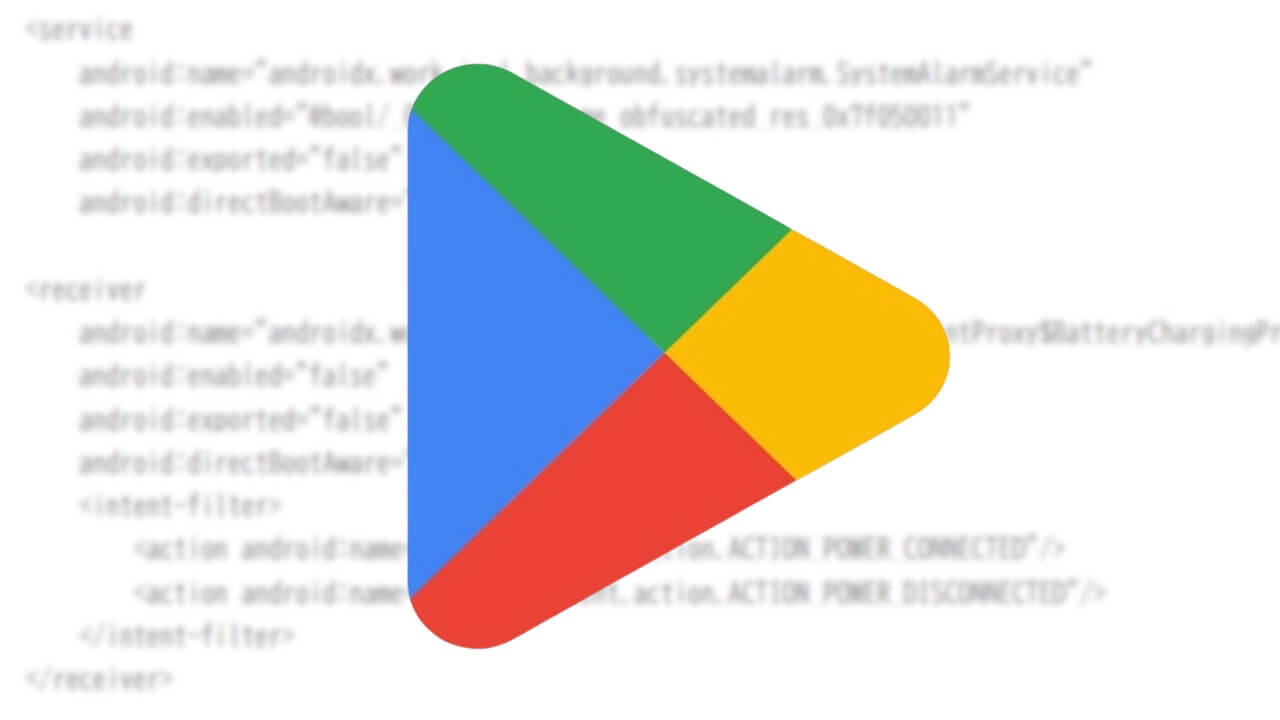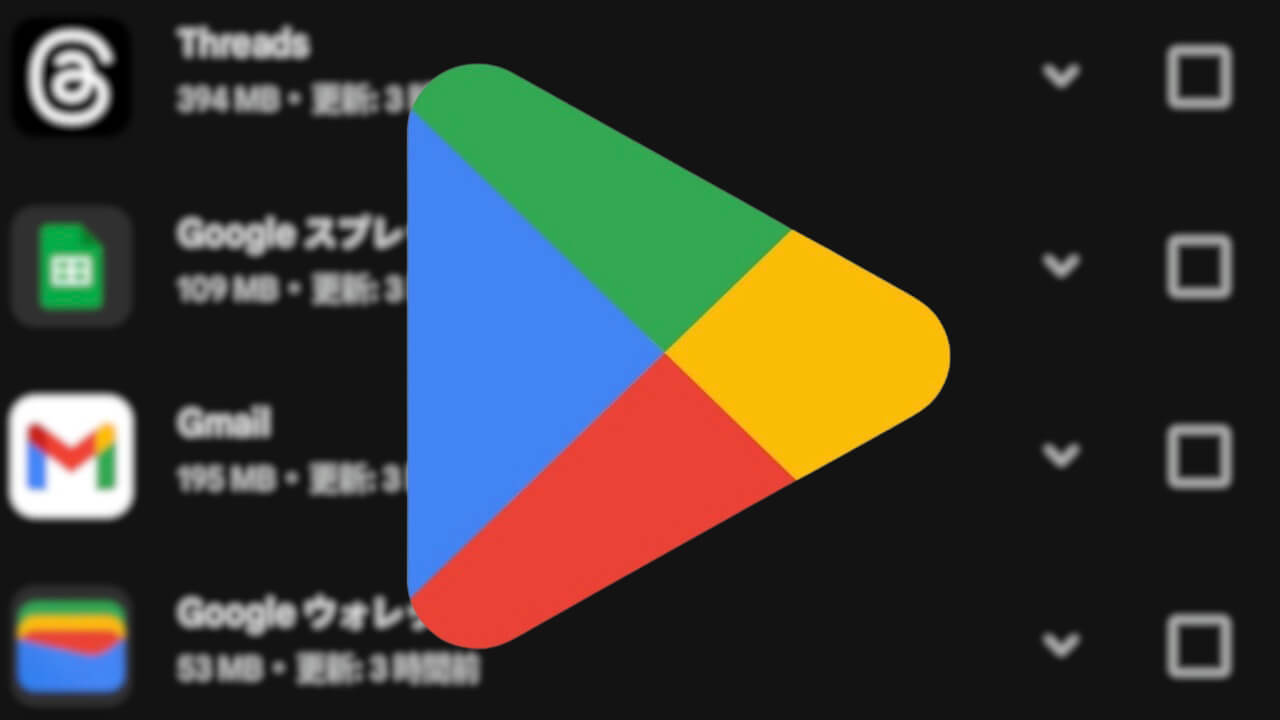Key Points of This Article
- Discovered code within the Android Google Play Store app v48.0 that appears to be the specification for faster restoration of favorite apps during initial Android device setup, as announced in the “Google System Update.”
- It seems that older management components (such as SystemAlarmService and ConstraintProxy) have been removed and consolidated into a more efficient new component (SystemJobService), resulting in optimized background task processing.
- With Android Google Play Store app v48.0 and later, unnecessary tasks are eliminated. Tasks are now executed intelligently in the most efficient order and timing, taking into account network conditions and charging status. This results in optimized background task processing for app downloads and installations.
Google, in the “Google System Update” September 2025 edition’s latest information, released on Monday, September 15, 2025, which includes new features to enhance the security and reliability of Android-related devices, announced “faster restoration of favorite apps during initial Android device setup” as a new feature to be rolled out to the Android Google Play Store app (v48.0).
The specific details of this “faster restoration of favorite apps during initial Android device setup” for the Android Google Play Store app v48.0 were not publicly disclosed, making the announcement somewhat unclear. However, we have discovered what appears to be the underlying specification within the app code of Android Google Play Store app v48.0, which was released around Friday, September 19, 2025. It seems that older management components (such as SystemAlarmService and ConstraintProxy) have simply been removed and consolidated into a more efficient new management component (SystemJobService), resulting in optimized background task processing.
Below are the older management components removed in Android Google Play Store app v48.0, which were present in v47.9 and earlier.
<service
android:name="androidx.work.impl.background.systemalarm.SystemAlarmService"
android:enabled="@bool/_0_resource_name_obfuscated_res_0x7f050011"
android:exported="false"
android:directBootAware="false"/>
<receiver
android:name="androidx.work.impl.background.systemalarm.ConstraintProxy$BatteryChargingProxy"
android:enabled="false"
android:exported="false"
android:directBootAware="false">
<intent-filter>
<action android:name="android.intent.action.ACTION_POWER_CONNECTED"/>
<action android:name="android.intent.action.ACTION_POWER_DISCONNECTED"/>
</intent-filter>
</receiver>
<receiver
android:name="androidx.work.impl.background.systemalarm.ConstraintProxy$BatteryNotLowProxy"
android:enabled="false"
android:exported="false"
android:directBootAware="false">
<intent-filter>
<action android:name="android.intent.action.BATTERY_OKAY"/>
<action android:name="android.intent.action.BATTERY_LOW"/>
</intent-filter>
</receiver>
<receiver
android:name="androidx.work.impl.background.systemalarm.ConstraintProxy$StorageNotLowProxy"
android:enabled="false"
android:exported="false"
android:directBootAware="false">
<intent-filter>
<action android:name="android.intent.action.DEVICE_STORAGE_LOW"/>
<action android:name="android.intent.action.DEVICE_STORAGE_OK"/>
</intent-filter>
</receiver>
<receiver
android:name="androidx.work.impl.background.systemalarm.ConstraintProxy$NetworkStateProxy"
android:enabled="false"
android:exported="false"
android:directBootAware="false">
<intent-filter>
<action android:name="android.net.conn.CONNECTIVITY_CHANGE"/>
</intent-filter>
</receiver>
<receiver
android:name="androidx.work.impl.background.systemalarm.RescheduleReceiver"
android:enabled="false"
android:exported="false"
android:directBootAware="false">
<intent-filter>
<action android:name="android.intent.action.BOOT_COMPLETED"/>
<action android:name="android.intent.action.TIME_SET"/>
<action android:name="android.intent.action.TIMEZONE_CHANGED"/>
</intent-filter>
</receiver>
<receiver
android:name="androidx.work.impl.background.systemalarm.ConstraintProxyUpdateReceiver"
android:enabled="@bool/_0_resource_name_obfuscated_res_0x7f050011"
android:exported="false"
android:directBootAware="false">
<intent-filter>
<action android:name="androidx.work.impl.background.systemalarm.UpdateProxies"/>
</intent-filter>
</receiver>The efficient and new management component, SystemJobService, is a component that manages tasks by having the OS determine the most appropriate timing for execution, considering device states such as charging, Wi-Fi connection, and idle status. This improves the overall execution performance of the Android system while conserving resources, thereby reducing excessive load on the CPU and communication, and also suppressing battery consumption.
When considering this in the context of initial Android device setup, the older Android Google Play Store app v47.9 and below, which retained the old management components, would attempt to execute each app download and installation task one after another. This made it prone to network congestion and overlap with other processes, leading to longer download and installation times during initial setup. It might have been a common situation for app downloads and installations to take a long time during the initial setup restoration on Android devices.
However, with Android Google Play Store app v48.0 and later, where the old management components have been removed and consolidated into the new SystemJobService, unnecessary tasks are eliminated. Tasks are now executed intelligently in the most efficient order and timing, taking into account network conditions and charging status. Consequently, app downloads and installations are now performed with optimized background task processing. This appears to be what enables the faster restoration of favorite apps during initial Android device setup.
For the average Android user, details about management components might not be very engaging or easily understandable. To put it simply, it’s similar to performing a device cleanup on your Android device, where you thoroughly delete unused apps and cache files to save internal storage space and prevent unnecessary memory consumption.





コメントを残す